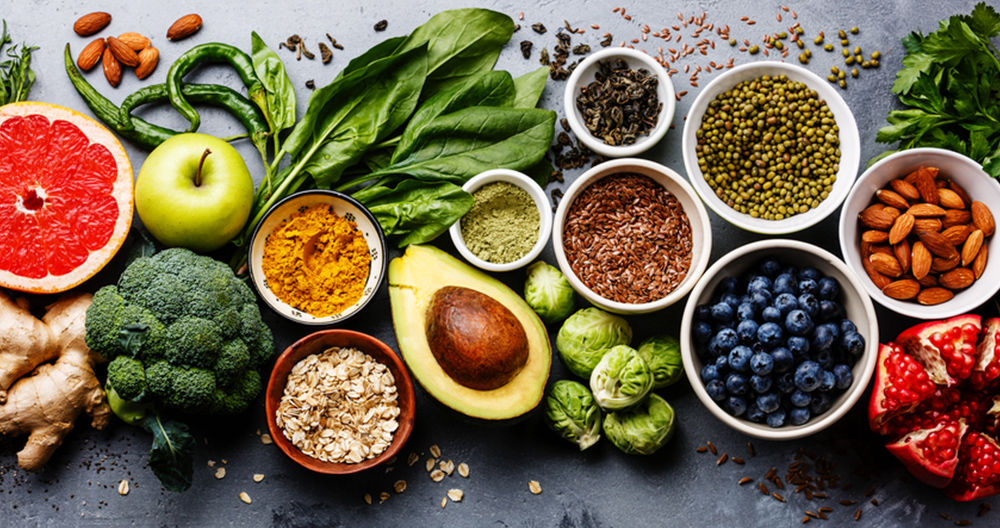How to Naturally Increase Haemoglobin Levels

Haemoglobin plays a crucial role in our overall health by carrying oxygen from the lungs to all parts of the body. Maintaining optimal haemoglobin levels is essential for proper cell function and overall well-being. If you’re looking for natural iron supplements to boost your haemoglobin levels, we have some helpful tips for you!
1. Eat Iron-Rich Foods
Iron is a key nutrient for haemoglobin production. Incorporate iron-rich foods into your diet such as spinach, tofu, lentils, beans, lean meats, and fish. Pair these foods with vitamin C-rich sources like citrus fruits, berries, and bell peppers to enhance iron absorption.
2. Include Vitamin C in Your Diet
Vitamin C aids in iron absorption and helps convert non-heme iron (plant-based iron) into a form that is more easily absorbed by the body. Include foods like oranges, tomatoes, strawberries, and broccoli in your diet for a vitamin C boost.
3. Consume Folate-Rich Foods
Folate, also known as vitamin B9, is necessary for proper blood cell production, including haemoglobin. Incorporate foods such as dark leafy greens, asparagus, avocado, and citrus fruits into your meals to increase your folate intake.
4. Include Vitamin B12 Sources
Vitamin B12 is essential for the formation of red blood cells and the synthesis of haemoglobin. It is primarily found in animal-based products like meat, fish, eggs, and dairy. If you follow a vegetarian or vegan diet, consider fortified cereals or supplements to fulfill your B12 requirements.
5. Optimize your Gut Health
A healthy gut is necessary for optimal nutrient absorption. Include probiotic-rich foods like yogurt, kefir, and sauerkraut in your diet to enhance gut health and ensure efficient iron absorption.
6. Stay Hydrated
Water is crucial for maintaining healthy blood volume and proper transportation of nutrients, including iron. Aim to drink at least 8 glasses of water per day to stay hydrated and help your body produce enough haemoglobin.
7. Engage in Regular Exercise
Regular physical activity can increase the production of red blood cells and haemoglobin over time. Incorporate activities like jogging, brisk walking, swimming, or cycling into your routine to stimulate your body’s natural haemoglobin production.
8. Manage Stress Levels
Chronic stress can impact your body’s ability to produce haemoglobin. Practice stress management techniques like meditation, deep breathing exercises, yoga, or engaging in hobbies you enjoy to reduce stress levels and support optimal haemoglobin production.
9. Get Sufficient Sleep
Adequate sleep is essential for overall health and can positively impact haemoglobin levels. Aim for 7-9 hours of quality sleep each night to support your body’s natural healing and rejuvenation processes, including the production of blood cells.
10. Avoid Iron Inhibitors
Certain foods can inhibit iron absorption, making it harder for your body to maintain optimal haemoglobin levels. Avoid consuming coffee, tea, calcium-rich foods, and high-fiber foods at the same time as iron-rich meals to maximize iron absorption.
While discussing natural ways to increase haemoglobin levels, it is important to note that there are various options available in the market, including Ayurvedic supplements like Sandu Haemol Forte. Sandu Haemol Forte is an Ayurvedic hematinic that claims to aid in the quick absorption of iron from the intestine, increasing its bioavailability and blood haemoglobin levels. It also exerts anthelmintic action and is claimed to be useful in cases of anemia caused due to worm infestation. It is said to be devoid of side effects like constipation, nausea, and diarrhea.
The key ingredients of Sandu Haemol Forte include Punarnava mandoor, loha bhasma, Abhrak bhasma, Tamra bhasma, trikatu (Shunthi, Marich & Pippali), and triphala (Amalaki, Haritaki, Bibhitaki). These ingredients are believed to have haematinic properties and may support the treatment of various types of anemia. Kuchala is also included in the formulation and is claimed to act as an excellent digestive tonic, stimulating digestive enzymes and increasing the absorption of nutrients.
It is important to note that while Ayurvedic treatments and supplements have been used for centuries and can be beneficial for many individuals, each person’s body is unique, and results may vary. It is always recommended to consult with a registered healthcare professional or an Ayurvedic practitioner before starting any new treatment or supplementation.






